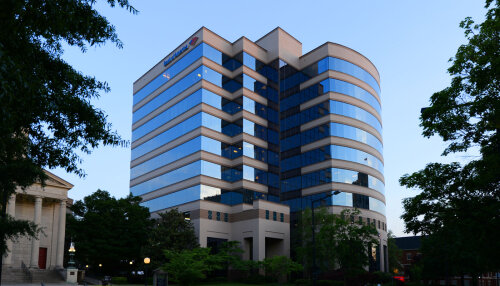Best ADR Mediation & Arbitration Lawyers in Maryland
Share your needs with us, get contacted by law firms.
Free. Takes 2 min.
Or refine your search by selecting a city:
List of the best lawyers in Maryland, United States
About ADR Mediation & Arbitration Law in Maryland, United States
Alternative Dispute Resolution, or ADR, is a collection of processes used to resolve legal disputes without going to court. The most common forms of ADR are mediation and arbitration. In Maryland, both mediation and arbitration are widely used for resolving a broad range of conflicts, including family law disputes, business disagreements, contract issues, and employment matters. Mediation involves a neutral third party who facilitates negotiation and helps the involved parties reach a mutually acceptable agreement. Arbitration, on the other hand, involves one or more arbitrators who hear evidence and make a binding or non-binding decision on the dispute. Maryland courts often encourage or even require parties to consider ADR methods before proceeding to a trial, recognizing that ADR can save time, reduce costs, and lead to more satisfactory outcomes.
Why You May Need a Lawyer
While many people successfully resolve disputes through ADR without legal representation, having an attorney is often critical for protecting your rights and interests. Consider hiring a lawyer in the following situations:
- When the subject matter or the amount involved in the dispute is significant
- If the other party has legal representation
- If you are unsure about your legal rights or the strength of your case
- When a contract or agreement governing ADR is complicated or ambiguous
- If you want help preparing your case or presenting your side effectively
- When enforcing or challenging an arbitration award or mediated settlement
- For reviewing settlement proposals before signing any agreement
- If required by the arbitration or mediation rules in your specific case
A qualified lawyer can help you navigate the procedures, safeguard your interests, and ensure that any agreement or award is fair and enforceable.
Local Laws Overview
Maryland has distinctive statutes and court rules that shape ADR procedures within the state. Key legal elements include:
- Mediation: Maryland Rule 17 outlines procedures for court-ordered mediation in civil cases. Mediation can also be voluntary, and parties may choose their mediator, provided they meet certain standards.
- Arbitration: The Maryland Uniform Arbitration Act (MUAA) governs most arbitration proceedings. The Act ensures agreements to arbitrate are generally enforceable and provides rules for the appointment of arbitrators, conducting hearings, and confirming or vacating arbitration awards.
- Confidentiality: Communications during mediation are typically confidential and cannot be used as evidence in court, barring specific exceptions such as threats of harm or evidence of criminal conduct.
- Court Involvement: Maryland courts can refer cases to ADR processes and may enforce compliance or confirm arbitration awards as judgments, making them legally binding.
- Specialized Programs: Maryland implements unique ADR programs for family law, business disputes, and government matters, each with tailored requirements.
Understanding these local laws is crucial for effective participation in ADR processes within Maryland.
Frequently Asked Questions
What is the difference between mediation and arbitration?
Mediation is a voluntary process where a neutral mediator helps the parties negotiate a mutually agreeable resolution. Arbitration is a more formal process where one or more arbitrators hear arguments and evidence, then make a decision that may be binding or non-binding, depending on the parties’ agreement.
Is participation in ADR mandatory in Maryland?
In some civil cases, especially in family law and certain civil courts, Maryland judges may require parties to attempt ADR before proceeding to trial. However, ADR is typically voluntary in other contexts unless parties have agreed to it in a contract.
How confidential are mediation and arbitration proceedings?
Mediation is generally confidential under Maryland law, and mediators cannot be compelled to testify about what was said during sessions, with specific exceptions. Arbitration proceedings are private, but the resulting award can become a public court record if filed for enforcement.
What types of disputes can be resolved through ADR in Maryland?
ADR can handle most civil disputes, such as contract disagreements, business disputes, employment claims, neighborhood matters, family cases, and property disputes.
Can I choose my own mediator or arbitrator?
Yes. Parties can agree on a mediator or arbitrator or select one from a roster provided by the court or a private organization. If the parties cannot agree, the court or ADR agency may appoint a neutral.
How does an arbitration award become legally binding?
If arbitration is binding, the parties have agreed in advance to accept the arbitrator’s decision. In Maryland, a party can file the award with the court to have it entered as a judgment, making it enforceable like any court order.
Do I need a lawyer to participate in ADR?
While you are not required to have a lawyer, legal representation is often beneficial to prepare your case, understand your rights, and review any proposed settlements or awards.
What happens if the parties cannot reach an agreement in mediation?
If no agreement is reached in mediation, the case may proceed to trial or, depending on the agreement, move into another ADR process such as arbitration.
How much does ADR typically cost in Maryland?
Costs vary based on the complexity of the dispute, the neutral selected, and whether the process is private or court-connected. Some court-sponsored ADR programs are free or low-cost, while private mediators and arbitrators charge hourly or flat rates.
How do I start the ADR process in Maryland?
The process can be started by agreement between the parties, court referral, or a contractual requirement. Contacting an ADR organization or speaking with a lawyer can help guide you through the process.
Additional Resources
Many organizations and agencies support ADR efforts in Maryland. If you need more information or assistance, consider reaching out to:
- Maryland Mediation and Conflict Resolution Office (MACRO) - A state office promoting ADR and listing resources and programs statewide
- Maryland State Bar Association (MSBA) - Offers information on lawyers experienced in mediation and arbitration
- Local Circuit Court ADR Offices - Each county may have its own ADR programs and referrals for mediation or arbitration
- Community Mediation Centers - Provide free or low-cost mediation services for community and neighborhood disputes
- American Arbitration Association (AAA) - Offers lists of professional arbitrators and mediators, along with guidelines for handling ADR proceedings
- Legal Aid Bureau of Maryland - May provide legal assistance in ADR cases for those who qualify
Next Steps
If you believe ADR is appropriate for your situation or you have been ordered to participate, consider these steps:
- Consult with a lawyer to discuss your rights, options, and the best approach for your dispute
- Contact your local court, ADR office, or a private ADR provider for procedural guidance and mediator/arbitrator options
- Review any contracts or agreements for ADR requirements and deadlines
- Prepare your case by gathering relevant documents and outlining your objectives
- Attend ADR sessions and be open to negotiation, but do not agree to anything without fully understanding your legal rights
- If an agreement or award is reached, ask your lawyer to review it before signing or filing with the court
Taking these steps can help you make informed decisions and increase the likelihood of a favorable outcome in your ADR process.
Lawzana helps you find the best lawyers and law firms in Maryland through a curated and pre-screened list of qualified legal professionals. Our platform offers rankings and detailed profiles of attorneys and law firms, allowing you to compare based on practice areas, including ADR Mediation & Arbitration , experience, and client feedback.
Each profile includes a description of the firm's areas of practice, client reviews, team members and partners, year of establishment, spoken languages, office locations, contact information, social media presence, and any published articles or resources. Most firms on our platform speak English and are experienced in both local and international legal matters.
Get a quote from top-rated law firms in Maryland, United States — quickly, securely, and without unnecessary hassle.
Disclaimer:
The information provided on this page is for general informational purposes only and does not constitute legal advice. While we strive to ensure the accuracy and relevance of the content, legal information may change over time, and interpretations of the law can vary. You should always consult with a qualified legal professional for advice specific to your situation.
We disclaim all liability for actions taken or not taken based on the content of this page. If you believe any information is incorrect or outdated, please contact us, and we will review and update it where appropriate.
Browse adr mediation & arbitration law firms by city in Maryland
Refine your search by selecting a city.













